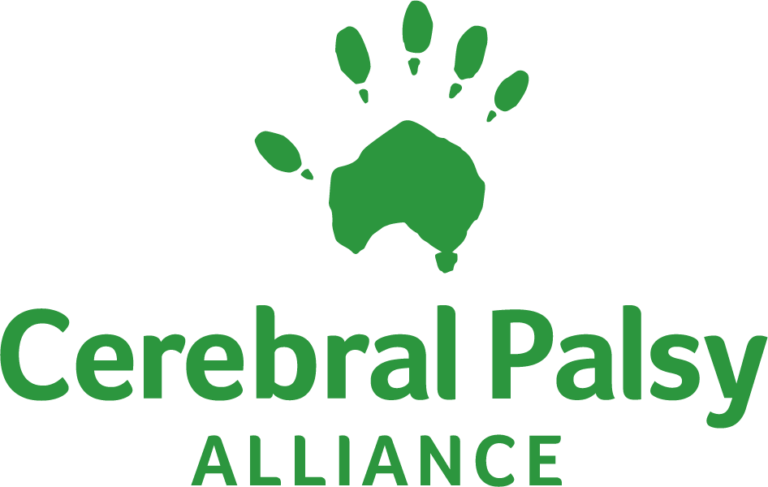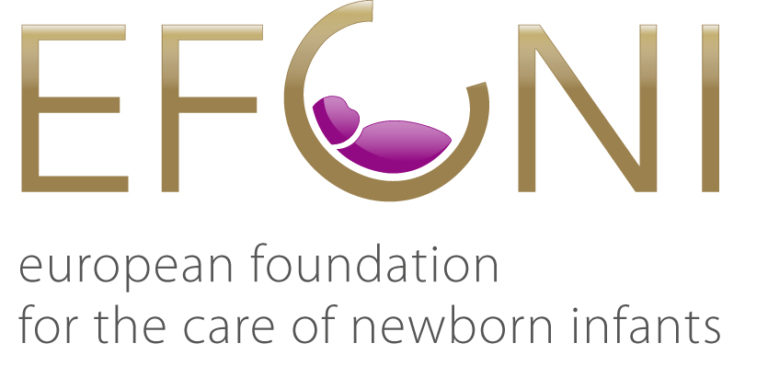our team
Patient/Consumer Advisory Board
Patient/
Consumer Advisory Board
overview
The PREMSTEM project has the potential to have a big impact on society and we want to make sure that we communicate our research progress and findings to as many interested people as possible. To help us do so, we have established an independent consultative group of patient and consumer representatives, the Patient/Consumer Advisory Board (PCAB), to guide us along the way.
The unique perspectives, input and recommendations of our PCAB members help us to refine and adjust our communication activities to reach our main audiences. Their feedback also contributes to the PREMSTEM exploitation strategy which outlines the project’s steps towards clinical trial/s.
The PCAB ensures that the voices of those born preterm and their family members and carers are heard and considered right from the start of the project.
Who coordinates the PCAB?
Our two not-for-profit partners coordinate this part of the project: the European Foundation for the Care of Newborn Infants (EFCNI) which is based in Germany, and the Cerebral Palsy Alliance (CPA) in Australia. The CPA’s already established patient/consumer reference group (knowledge forum) provides further opportunities to involve patients and consumers in the project.
Why do we involve patients and consumer representatives in our research project?
By involving patient and consumers in the PREMSTEM project, we have direct contact with a group of people who represent those who may one day benefit from our therapy – individuals who were born preterm, as well as their parents and carers.
Thanks to their real-life experiences and connections to the wider preterm community, our PCAB members are well placed to provide us with valuable input and feedback. The PCAB also provides a forum for our representatives to raise concerns or ask questions about the research directly to members of the PREMSTEM team.
How often does the PCAB meet?
The PCAB meets virtually at least twice-yearly and there are offline group discussions throughout the duration of the PREMSTEM project.
What sort of tasks will the PCAB be involved in?
The PCAB will provide feedback and comments on the content and design of our communications materials and channels to make sure we are communicating our messages clearly to a general audience.
The representatives will also be active contributors to the co-creation process envisaged within the project – a process which aims to ensure that PREMSTEM responds to the needs and expectations of as many stakeholders as possible within the neonatal ecosystem.
Who is on the PCAB?
The Patient/Consumer Advisory Board (PCAB) is composed of six members, one person from the Cerebral Palsy Alliance and a chair from the European Foundation for the Care of Newborn Infants (EFCNI).
Patient/Consumer Advisory Board members
Ms Fabiana Bacchini is the Executive Director of the Canadian Premature Babies Foundation. She is a journalist and the published author of From Surviving to Thriving, a Mother’s Journey Through Infertility, Loss and Miracles. She is also a mother of a surviving twin, born at 26 weeks, who has quadriplegia cerebral palsy.
Fabiana joined the PCAB for the possibility to contribute alongside clinicians and researchers to improve outcomes for future generations.
She sees the PCAB as bringing a lived experience to an important research project that will impact the lives of babies worldwide and their families.
Fabiana believes that the most significant outcome of the PREMSTEM project will be a better understanding of the field and how it can improve the outcomes for preterm babies.
Ms Alishia Ballintine lives in Queensland, Australia. Her youngest daughter, a late preterm baby, suffered a perinatal stroke resulting in right hemiplegic cerebral palsy and epilepsy.
Alishia works in research governance, commissioning and contracting. She has a keen interest in applied health research to inform evidence-based best practice. In both a personal and professional capacity, she is passionate about research translation, the lived experience perspective, and driving and improving patient outcomes.
Alishia joined the PCAB for its unique opportunity to be involved in an innovative research project and assist in guiding the patient and consumer viewpoint in a sensitive and emotive area. For Alishia, a clinical ready model of treatment will be the most significant outcome of PREMSTEM.
In particular, she hopes that the PCAB can help to break down the barriers, fear and ‘stigma’ attached to stem cells, stem cell research and their use, and shine a light on the benefits and the incredible opportunity they present. She expects the project will benefit from the PCAB’s experience and inputs to pre-emptively address some of the patient and consumer concerns and topics regarding the use of stem cells.
Ms Vera Bikicki Ivezić lives and works in Belgrade, Serbia. She has four children – two sets of twins. The first set was born prematurely, and her eldest son has moderate cerebral palsy. By profession she is an artist, a painter. She is a representative of the association Little Giant.
Vera wanted to be involved in PREMSTEM because it is innovative. Unlike many projects, the goal is to solve the cause and not the consequence, and thereby prevent certain consequences of premature birth that have a great impact on children and their families.
In her role on the PCAB, Vera looks forward to sharing with the PREMSTEM researchers the biggest concerns and questions about the project from the parents’ point of view and provide valuable input into the preparation of materials for parents. Alongside the other PCAB members, she will also help communicate information about the project to her own networks when appropriate.
Mr Matthew Miller was born in Sydney, Australia and has lived with mild cerebral palsy for his entire life, having been treated for it with botox several times before the age of 18. At the end of 2020 Matthew completed a Bachelor of Science in Molecular Biology and Genetics and currently works as a freelance editor for a scientific journal.
Matthew’s keen interest in biology and science communication motivated him to join the PCAB and to apply those interests to his own experience with cerebral palsy and potentially help others who have grown up with it. He hopes that it can foster a greater understanding among people with cerebral palsy, and parents and caregivers of those people, about what the biological mechanisms of cerebral palsy are, plus the potential scope and limitations for developing therapies which counteract those mechanisms.
Matthew hopes that PREMSTEM’s therapy to counteract the effects of brain damage caused by preterm birth could mean a permanent cure for one of the main causes of cerebral palsy before it can have any negative effects.
Ms Livia Nagy is one of the founding members and vice-president of the Right(s) Beside you Association (Melletted a helyem Egyesület) in Hungary, which brings together doctors, medical professionals, policy makers, NGOs and the parents of preterm children in order to improve the quality of newborn care.
Born in Hungary, Livia now lives with her family on the French-Swiss border meaning she has first-hand experience of the NICU care and follow-up systems in Hungary, France and Switzerland. A trained nurse, Livia works mostly with babies and children in cardiac departments and a CICU (cardiac intensive care unit).
Livia is a mother of four children: three girls, and a 14-year-old preemie boy who was born at gestational week 27. Livia’s son suffered PVL during his 14 weeks in the NICU, and 14 years on, the family is living with the consequences of his brain injury. He is living with motor and neurocognitive challenges.
As a member of the PCAB, Livia will help PREMSTEM to use plain language in its communication with society and health stakeholders.
Livia believes that the most significant outcome of the project will be to find the best way, dose and timing for the administration of the therapy to achieve effective and safe treatment and start to set up clinical trials.
Dr Gert van Steenbrugge is the father of two adult children, born respectively at 34 and 26 weeks of pregnancy. He is former director of the Dutch parent organisation VOC (Vereniging van Ouders van Couveusekinderen), currently known as Care4Neo. He holds a PhD in biochemistry and worked for many years in biomedical research.
Given this background, Gert’s special interest and activities for VOC focused on medical advocacy work. In close cooperation with care providers he was involved in aftercare and follow-up programmes, member of several guideline committees, and participated in research groups. For several years he was also member of the EFCNI Parent Advisory Board.
Having both the scientific perspective and as a father of a child living with the consequences of cerebral palsy, Gert felt motivated to join the PCAB. He will help the project team to maintain the patient perspective and expects to play a role in watching over the interests of participating children and their parents.
Brain injury has a great impact on the development of preterm born children. Gert feels that all attempts to improve brain function, which is the main goal of PREMSTEM, will contribute to improved quality of life of children with cerebral palsy.
premstem members
Professor Luc Zimmerman is Medical Director of EFCNI and Professor of Paediatrics and Neonatology at Maastricht UMC+.
PREMSTEM explicitly prepares for the future clinical use of the new treatment and patient, parent and stakeholder perspectives are essential to all aspects of our research. Luc says that the PCAB will contribute to the future success of applying our research findings to the improvement of neonatal outcomes.
According to Luc, the PCAB members have a vital role in the PREMSTEM project. They can give input into future (clinical) research questions, tell us about the outcomes they see as relevant, provide feedback during the current project and later clinical trials, and help to shape the exploitation and implementation, dissemination and communication of project and results. In addition, their contribution to co-creation sessions with our stakeholders is expected to generate new ideas.
Dr Megan Finch-Edmondson is Senior Stem Cell Research Fellow at the CPA. In this role she collaborates with researchers, clinicians and members of the cerebral palsy community to build capacity for stem cell research for cerebral palsy in Australia, particularly in clinical trials.
Megan is passionate about involving consumers in all aspects of the research cycle; patient and consumer engagement improves the quality of research in many ways including by offering different perspectives, helping make sure research priorities are important, and ensuring that research is done in a way that is relevant and productive.
Megan believes that the unique contribution of the PCAB is a key strength of PREMSTEM that will help to accelerate impact from this innovation project.
Ms Aisling Walsh works as Senior Project Manager for Maternal and Newborn Health in the Scientific Affairs Department of EFCNI. She is a political scientist specialised in EU and international project management covering a wide range of themes, including neonatal and maternal issues. Healthcare, and specifically that of children and premature babies, has been of particular interest to Aisling over the years both professionally and personally. Her mother is a twin who was born preterm and she has a young daughter herself.
Aisling says that EFCNI is proud to manage the PCAB and lend its expertise to including the patient/consumer viewpoint in the project. With its vast network and knowledge of neonatal topics, EFCNI wants to maximise the outputs of the PREMSTEM project and ensure that all stakeholders are heard.
According to Aisling, the PCAB has a vital role within PREMSTEM, for example by helping to make the project understandable to a larger audience outside of the scientific community. Moreover, the PCAB can ensure that the purpose and outcomes of the research are meaningful for patients and their families in addition to clinicians. Ultimately, the PCAB’s input will facilitate the process to clinical trial which is the next step of this research.


